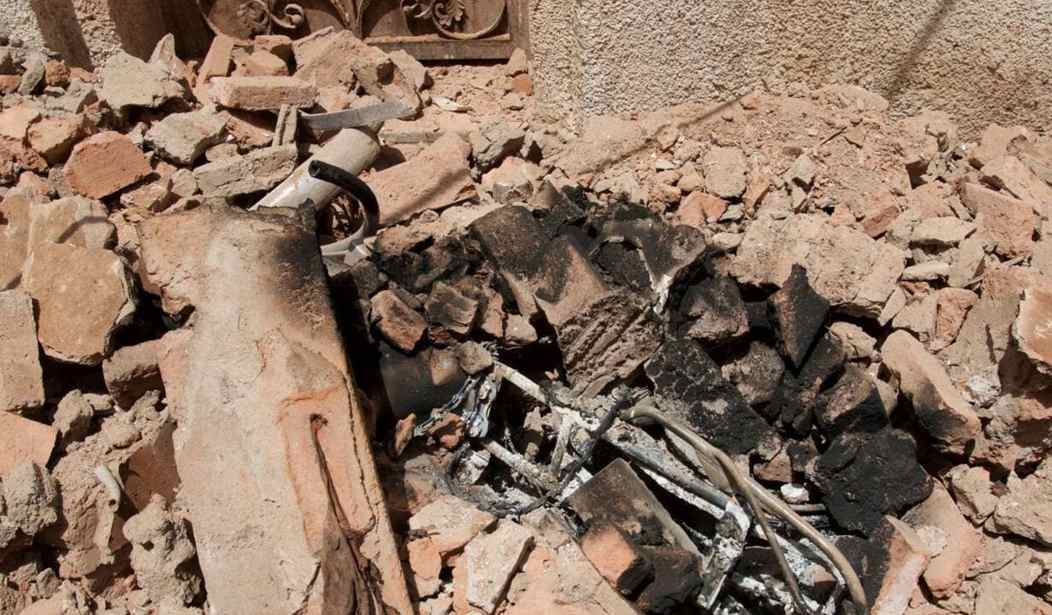The Muslim holy month of Ramadan will end on Sunday and Islam’s holiest city, Mecca, is jam-packed with visitors fulfilling their obligation to make a pilgrimage to Mecca once in their lifetime.
The gathering is a ripe target for terrorists, and the Saudi government announced they had foiled planned attacks on the Grand Mosque by three terror cells.
One suicide bomber was cornered by security forces and blew himself up. Two other cells were also rolled up with five suspected terrorists arrested.
Saudi security forces on Friday foiled a suicide attack on the Grand Mosque in the Muslim holy city of Mecca, cornering the would-be attacker in an apartment, where he blew himself up, the Interior Ministry said.
In a statement read on state television, the ministry said that three cells had planned the attack on worshippers and security forces at the mosque as the Muslim holy month of Ramadan nears its climax.
The trapped would-be suicide bomber exchanged fire with the security forces, then set off explosives when he was surrounded in a house in the central Mecca neighborhood of Ajyad al-Masafi near the mosque that had been used as the base for the attack, the ministry said.
The building collapsed, injuring six foreigners and five members of the security forces.
Earlier in the day, security forces had shot dead a wanted man at another suspected Islamist militant hideout in Mecca’s al-Aseelah neighborhood. The ministry also said a third cell had been broken up in the Red Sea city of Jeddah, but gave no further details.
Five suspected militants including a woman were arrested, it said.
The month of fasting ends with the Eid-al-Fitr holiday, expected to be on Sunday. Saudi monarchs usually spend the last 10 days of Ramadan in Mecca.
Al Arabiya broadcast live footage of Muslim worshippers praying in the mosque, with no interruption.
It was not immediately clear who was behind the plot to attack the mosque, but the Islamic State group, which wants to establish a theocratic caliphate ruled according to strict Islamic law, had in the past carried out attacks in the kingdom.
A suicide attack carried out at or near the mosque could have led to a horrific loss of life. The densely packed sea of pilgrims would panic and result in a stampede similar to a tragedy that occurred on September 24, 2015, when for a still unknown reason, tens of thousands of pilgrims panicked and the resulting stampede killed upwards of 2500 people. (The Saudis have never released believable casualty figures from the incident.)
Whatever legitimacy the Saudi royal family has among Muslims is derived from their claim to be the guardians of Islam’s two holiest cities — Mecca and Medina. Even an unsuccessful terrorist attack makes the government nervous about how they are perceived by other Muslims. If all three terror cells had ISIS connections, it would be a strong indication that the caliphate is looking to delegitimize the Saudi royal family — especially since most of the important royals would have been present in Mecca if the attack had been successful.
The Saudis were lucky this time. How long that luck holds remains to be seen.










Join the conversation as a VIP Member